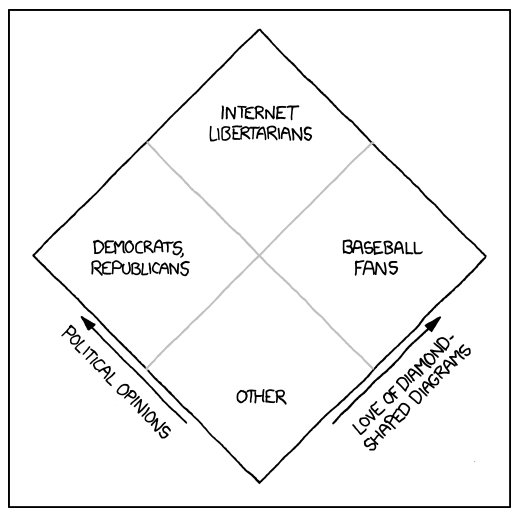From the most recent Libertarian Enterprise where L. Neil is discussing Ann Coulter’s dislike of Ron Paul:
In the column in question, she accuses Dr. Paul of hypocrisy, of being a libertarian who wants to get rid of government (both of which are untrue) while at the same time wanting people to elect him President.
There are two (and only two) fundamental tenets that an individual must accept wholeheartedly and without reservation in order to call him- or herself a libertarian. As decent and likable a fellow as Dr. Paul happens to be, I have never heard him specifically endorse either one.
If I am wrong, please correct me; it would be good news.
First of all, you have to regard yourself — as well as each and every individual around you — as the sole proprietor of his or her own life and, for better or worse, all of the products of that life, including the fruits of your labor and, equally, the smoke from your chimney. The concept is called “absolute self-ownership” — accept no substitutes.
Second — and this is the social and political manifestation of absolute self-ownership — you have to agree never to initiate physical force against another human being for any reason whatever, nor to advocate this initiation, or delegate it to someone else. This concept is called the “Zero Aggression Principle” and it is the absolutely indispensable bedrock on which political libertarianism rests.
If anyone argues with you about that, it’s because he (or she) wishes to reserve some right that he (or she) falsely imagines he (or she) has, to employ force against you whenever he (or she) feels it necessary or convenient. For the sake of national security. Or for the children.
Whatever you think of these ideas, they are unquestionably central to everything that is truly libertarian, and all proposed libertarian policies spring from them. Regrettably, the general freedom movement, as well as the Libertarian Party itself, are cluttered today with counterfeit libertarians — Nerfs and LINOs — who can’t make the moral cut. Coulter claims she has one libertarian friend who is “not crazy”, but if she regards him or her as “not crazy”, it’s certain that whoever she’s talking about is not a libertarian at all. This is among the best reasons I can think of for defining libertarianism properly.


 Here’s the riding of Whitby-Oshawa in the 2008 election. Notice all that deep blue colour? As the legend says, the opacity of colour indicates the strength of the party in that area. Up in the Brooklin area, you can barely see the underlying road pattern for all the blueness.
Here’s the riding of Whitby-Oshawa in the 2008 election. Notice all that deep blue colour? As the legend says, the opacity of colour indicates the strength of the party in that area. Up in the Brooklin area, you can barely see the underlying road pattern for all the blueness.


